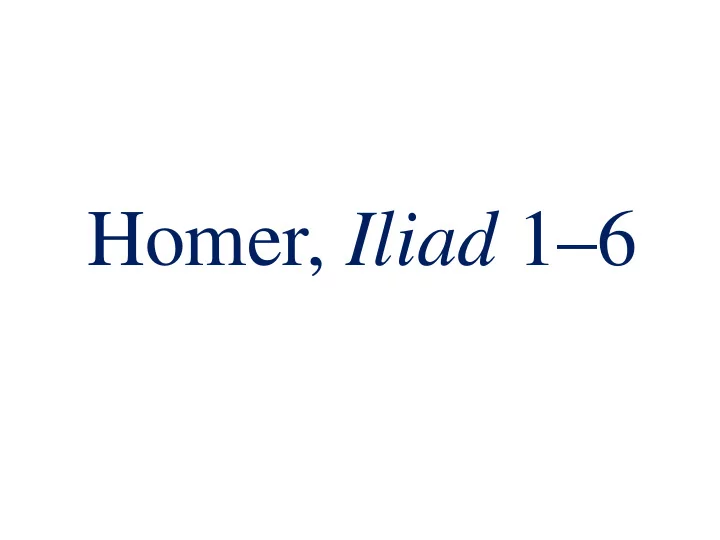

Homer, Iliad 1–6
prolepsis (plural: prolepses) analepsis (plural: analepses) teichoskopia
So speaking glorious Hektor held out his arms to his baby, who shrank back to his fair-girdled nurse’s bosom screaming, and frightened of the aspect of his own father, terrified as he saw the bronze and the crest with its horse-hair, nodding dreadfully, as he thought, from the peak of the helmet. Then his beloved father laughed out, and his honoured mother, and at once glorious Hektor lifted from his head the helmet and laid it in all its shining upon the ground. Then taking up his son he tossed him about in his arms, and kissed him. (6:466–74)
‘[…] your own great strength will be your death, and you have no pity on your little son, nor on me, ill-starred, who soon must be your widow; for presently the Achaians, gathering together, will set upon you and kill you; and for me it would be far better to sink into the earth when I have lost you, for there is no other consolation for me after you have gone to your destiny – only grief; since I have no father, no honoured mother. It was brilliant Achilleus who slew my father […] Hektor, thus you are father to me, and my honoured mother, you are my brother, and you it is who are my young husband. Please take pity upon me then, stay here on the rampart, that you may not leave your child an orphan, your wife a widow […]’ (6:406–14, 429–32)
kleos timē
‘Since, my mother, you bore me to be a man with a short life, therefore Zeus of the loud thunder on Olympos should grant me honour at least.’ (1:352–54; cf. 12:323–28)
This was the ugliest man who came beneath Ilion. He was bandy-legged and went lame of one foot, with shoulders stooped and drawn together over his chest, and above this his skull went up to a point with the wool grown sparsely upon it. (2:216–19) ‘Fate is the same for the man who holds back, the same if he fights hard. We are all held in a single honour, the brave with the weaklings. A man dies still if he has done nothing, as one who has done much.’ (9.318–20) ‘This is a disastrous matter when you set me in conflict with Hera, and she troubles me with recriminations. Since even as things are, forever among the immortals she is at me and speaks of how I help the Trojans in battle.’ (1: 518–21)
kleos timē aristeia arete
Recommend
More recommend